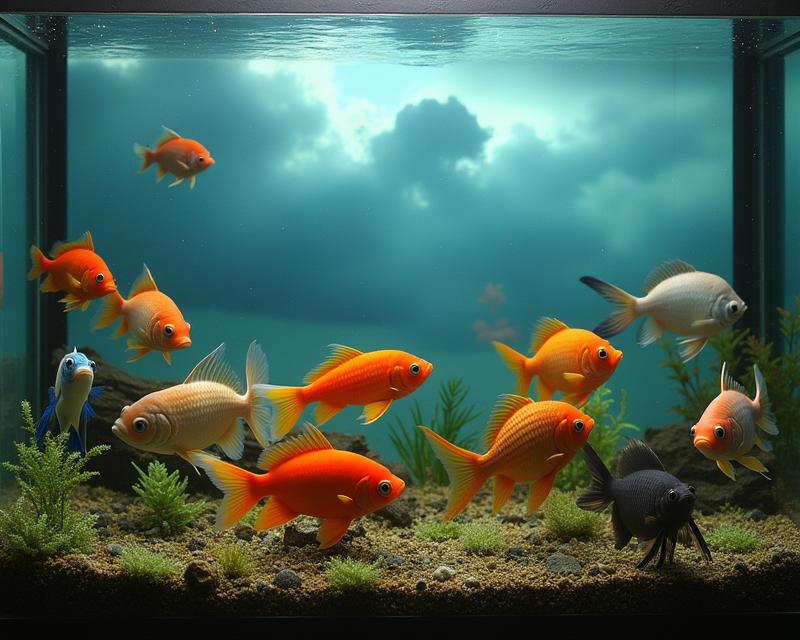Fishy Forecast: How Weather Affects Your Pet's Mood!
Publish in General Care el 28/06/2025 18:36
Does the Weather Affect Your Fish?
Have you ever noticed your pet acting a little…off? It’s not just us humans who are influenced by the weather! Our finned friends, the pet fish, are surprisingly sensitive to changes in atmospheric conditions. While they might not be complaining about a chilly breeze like we do, their behavior can definitely shift depending on whether it's sunny, cloudy, rainy, or stormy.

Why Does Weather Matter to Fish?
Fish are cold-blooded creatures, meaning they rely on their environment to regulate their body temperature. Changes in temperature, light, and even atmospheric pressure can all impact their well-being. At a pet daycare, where water parameters are carefully controlled, these subtle shifts can still be detected. Even if the tank temperature remains stable, the fish can sense changes in the overall energy of the environment. Think of it like this: a sudden storm might create a slight vibration in the water, or a cloudy day could reduce the amount of light reaching the tank.
What Changes Might You See?
You might observe some interesting behavioral changes in your fish based on the weather. On sunny days, they might be more active, exploring their tank and engaging in more playful behaviors. Cloudy days, on the other hand, could lead to a more relaxed or even slightly lethargic demeanor. During thunderstorms, some fish may become more skittish, hiding amongst the decorations or exhibiting erratic swimming patterns. It's important to remember that every fish is an individual, and the effects of weather can vary from fish to fish.
What Can You Do?
While you can't control the weather, understanding how it affects your fish can help you provide the best possible care. Observe your fish's behavior closely and be attentive to any sudden changes. Ensure your tank's environment remains stable by maintaining proper water parameters (temperature, pH, etc.) and providing plenty of hiding places. A calm and stable environment can help your fish navigate even the most unpredictable weather! If you notice any persistent behavioral changes, it's always a good idea to consult with a veterinarian specializing in aquatic animals. They can help rule out any underlying health issues and provide tailored advice for your fish's needs.





